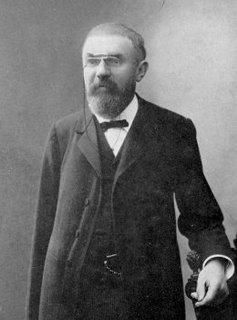 The concept of intelligentsia must not be confused with the notion of intellectuals. Its members thought of themselves as united by something more than mere interests in ideas; they conceived of themselves as being a dedicated order, almost a secular priesthood....
The concept of intelligentsia must not be confused with the notion of intellectuals. Its members thought of themselves as united by something more than mere interests in ideas; they conceived of themselves as being a dedicated order, almost a secular priesthood....Isaiah Berlin, Russian Thinkers. New York: Viking Press; 1978, p. 117.
Sean Penn, Brittani Spheres, Barbara Streisand, these are our public intellectuals, the West's intelligentsia today. They announce positions on this or that issue du jour, and our media lap it up and splash it around like it's manna from Heaven. Our public policy ideas come from idiots in Hollywood, and they are valued highly as oracular. They are special, not only in the minds of the public but in their own minds they are especially special, so special that they must continue to tell the world their every opinion. Why do we read their nonsense? Because they are geniuses.
Yes, we have a special definition for this special type of genius. We use the term in the sense of 19th century Romance, genius as Artist, Alone, Sensitive, Tormented, Tragic, and oh so Creative! Michael Jackson summed it up nicely when he responded to criticism from The National Enquirer:
"Am I not human? Can you not see I bleed?"
Deep.
At least part of the problem we in the West face today regarding the mire of multi-culturalism and its attendant micro-cultural miasmas of identity fascism comes from Romance philosophy, from the elevation in the public mind of the Artist as Thinker who Feels! Deeply! and Significantly!
God help us. We live in the age of the triumph of the will of Susan Sarandon.
Romanticism is a direct reaction against the Enlightenment, and they are those whom Isaiah Berlin refers to as the Counter-Enlightenment, the ones today we term Left dhimmi fascists. The line is continuous from the 1790s to today. We live with the dregs of Romanticism. In our look at identity fascism below for the sake of brevity we will quote from Ivan T. Berend, History Derailed to give a thumbnail version of Romanticism. It is our hope that such a view will begin to show why we in the West are saddled with such idiots in the public domain and why such idiots are lauded for their idiocies. We must be idiots.
Our public intelligentsia are not intellectuals, they are "Romantic Figures!" Not today our figures Byron, Frankenstein, Damien, or Sam Spade: Today's Romantic Figure! is a Hollywood idiot such as Michael Moore. Romance has degenerated. It wasn't always this bad. It started long long ago in a galaxy far far away...
In the West, romanticism was "an intellectual reaction against the eighteenth century ideals of order, discipline, and reason" (Eugene Weber 1960, 13) and an effort to liberate sentiment, emotion, instinct, and even the subconscious.... German romantics revolted more against reason and the ideas of the French Revolution (Reiss 1995, 3)....
Romanticism, thus, was a war against the rules of convention and existing reality. (Berend: p42.)
That is Romanticism at a personal level. One might stomach the insipid individual mooning about holding a rose in his tubercular- pale hand but it goes far further and becomes sinister and eventually murderous as we follow Romance into the pit of nationalist xenophobia and pathological racism. Berend writes that Romanticism left the man and became an expression of Man as part of Nation. Schiller writes, if memory serves, that man is a fragment of the whole, meaning that man is not anything in and of himself, not the end entire of himself as Kant has it, but only identifiable as being in conjunction with others and as opposed to others. No one can be without the boundary of not being, i.e. not being someone or something else. The suffering and tragic poet, the genius alone and tormented, becomes the symbol of the nation, the symbol of the people, the movie star of the time, one whose words are deeply meaningful to the mass of inarticulate and anonymous. But the poet, the Artist!, he who must die a tragic and operetta death, embodies the national soul, and he is not a real person at all. No one in the Romantic version of reality is real unless he is part of the whole that gives him identity, that gives him meaning and soul and validity and authenticity as a being of the identifiable group.
This idea of nation and identity becomes important in the reaction against the French Revolution in Europe and the invasion of German areas during the Napoleonic era: German principalities were not Germany, and politically they were not a nation, not a unity in anything but-- at best-- the German language. And there were the French on the borders of Germanic lands, invading, bringing with them all those horrible fancy French ideas of Liberty, Equality, and Brotherhood, the horrors of reason, rationality, and logic. The German people needed a rallying point from which to unite against the invasion of Modernity, and they chose Romance.
Romanticism arrived as a militant national idea, expanding the notions of freedom and individualism beyond the realm of the person. [ed. emphasis.] It was transformed into a matter that required the mobilization of the nation. The romantic cult of genius shifted from the sphere of art to that of politics.... (Berend: p. 43.)
To be not French the Germans had to be something else, and they chose to be German. Whereas the French Revolution valued the Enlightenment, the Germans reacted against it and valued the Counter-Enlightenment. The Germans were not alone. Many joined the old guard French establishment in resisting and sabotaging the Revolution. Because of nearly endless westward migration America had no such counter-revolution, nor did America have centuries of entrenched feudalist tradition to wipe out. France and Europe generally had, and have, the problem of feudalism to this day trying to re-establish itself as the dominant force of society. the Germans in particular, became Romantic to the extreme. And one of the first things that made them German was the German language. Next was the German Soil. Eventually, the German Blood. And then the German Soul, embodied in the leader, similar to today's idiot movie star.
It's no good being different from the French unless that difference makes one better than the French.
The "West was declining because of its skepticism, its rationalism, its materialism... the Germans... should be viewed as a fresh and youthful nation... barbarous indeed, but full of violent energy," (Berlin 1978, 120; Berend: p 43.)
But, not only was Germany a new and violently dynamic nation it was also rooted in the heroic past:
Romantic individualism and Weltschmretz [world pain, oh, the pain of it all,] and passion were connected here with national cataclysm and national oppression. Romantic longing conjured up a glorious past and a victorious future, stirring desire to rejuvenate the ailing nation.
We have here a group of people , the Germans, very much like today's Muslims, who are faced with a superior culture and superior military; and the Germans, as the Muslims today, were in reaction against it, longing for the time when there was no such threat to the old order. Being no nation, no way of identifying themselves as alike to others of their group, they fastened onto, in the case of Germans, the language, and in the case of the barbarians of our time, the Muslims, Islam. The group identity of Romance fascism, we hope, is becoming clear.
Like today's Muslims, the Germans had to create an identify different from the others around them in order to be something recognizable to themselves. If I am infinite then I am nothing because I am everything. If there is something other than me, then I know that I am specifically me. So it is with the created German nation: each person who could be German was so by not being other. He had an identity. But his identity would be meaningless if he were the only German in existence. He could only be German if there are other Germans with whom to share his identity, to give him boundaries within the Germanness of being. Every man is a fragment of the whole, and as a fragment he is nothing. Only the whole has integrity. Thus, only the German nation has integrity, and only by belonging to the nation can the German find his personal identity.
To be German meant to be other, and to be German meant to be better than them, the French, for example. But what is German? It had to be invented. The past had to be great. It had to be the time of Heroes and mythological beings who the Germans were descended from till today, in their current lowly state they could again, if they united, become. they used to be great, and now, brought low, they were invaded. The solution would be to return to the idealize past to become what they were then. To be good,they had to be pure. For the Germans it meant ridding the land of those who were pretend Germans, the Jews, the Gypsies, the homosexuals, the ill, the old, the foreign. For today's Muslim, add the same groups and give them perhaps different names, kafirs, Jews, polytheists, apostates, and so on.
The intelligentsia of the group, not the intellectuals exactly but the ones who know, the gnostic and feeling top dogs of the nation would lead the nation to glory. They, being the mind of the body politic, would lead the group to the pure and heroic past. Perhaps, as Herder wished, each national group would lead its own to its own glories. But only as individual groups of peoples. Each peoples a collection of fragments of the whole, meaningless in themselves, inferior to the whole. Only the nation was important, and only the part of the nation that were authentic had a place in that whole. The others had to be excluded for the health of the Nation. The group had an identity.
The geniuses who came up with this crap were smart people, not all of them evil. The idea of group identity lives with us today in the concepts of multi-culturalism and identity politics. Those who speak for it are the intelligentsia of the West, the idiot movie stars we we read about in the tabloids. And they are the professors of anthropology, such as the one we will read here in our next installment on Identity Fascism.
More on Sean Penn and the idiocies of Hollywood Gods below:
http://rightwingdeathbogan





![[TypeKey Profile Page]](http://www.jihadwatch.org/dhimmiwatch/nav-commenters.gif)



 Johann Gottfried Herder was undoubtedly one of the most significant representatives of
Johann Gottfried Herder was undoubtedly one of the most significant representatives of